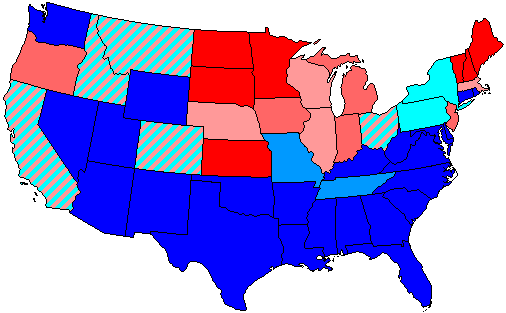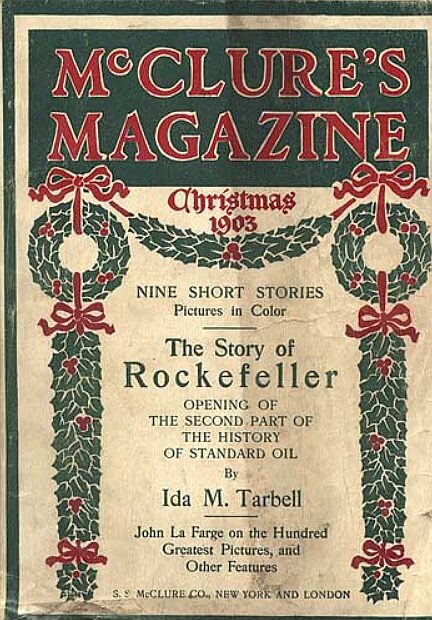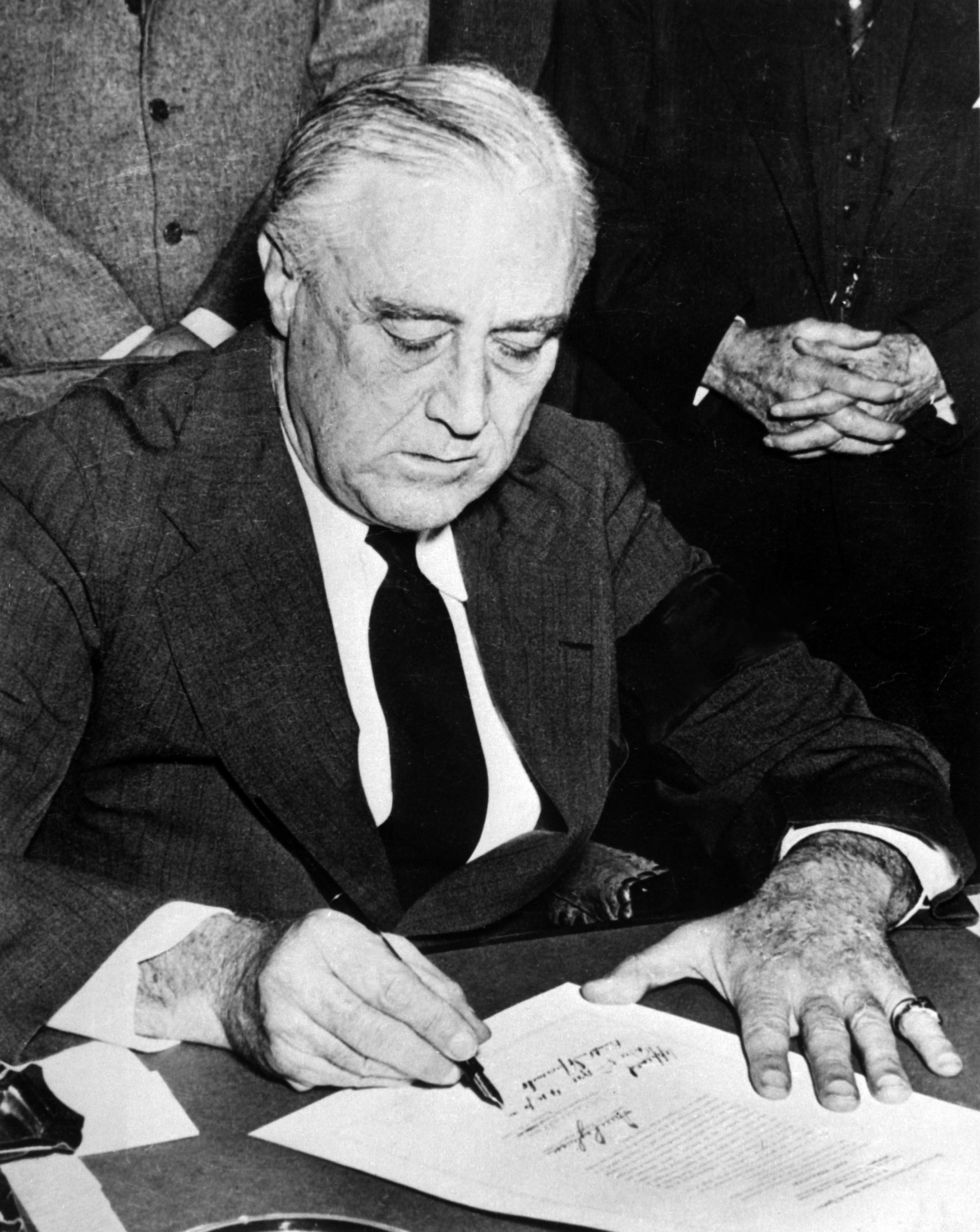|
Jeannette Pickering Rankin
Jeannette Pickering Rankin (June 11, 1880 – May 18, 1973) was an American politician and women's rights advocate who became the first woman to hold federal office in the United States in 1917. She was elected to the U.S. House of Representatives as a Republican from Montana in 1916; she served one term until she was elected again in 1940. , Rankin is still the only woman ever elected to Congress from Montana. Each of Rankin's congressional terms coincided with the initiation of U.S. military intervention in one of the two world wars. A lifelong pacifist, she was one of 50 House members who opposed the declaration of war on Germany in 1917. In 1941, she was the sole member of Congress to vote against the declaration of war on Japan following the attack on Pearl Harbor. A suffragist during the Progressive Era, Rankin organized and lobbied for legislation enfranchising women in several states, including Montana, New York, and North Dakota. While in Congress, she intro ... [...More Info...] [...Related Items...] OR: [Wikipedia] [Google] [Baidu] |
Montana
Montana () is a state in the Mountain West division of the Western United States. It is bordered by Idaho to the west, North Dakota and South Dakota to the east, Wyoming to the south, and the Canadian provinces of Alberta, British Columbia, and Saskatchewan to the north. It is the fourth-largest state by area, the eighth-least populous state, and the third-least densely populated state. Its state capital is Helena. The western half of Montana contains numerous mountain ranges, while the eastern half is characterized by western prairie terrain and badlands, with smaller mountain ranges found throughout the state. Montana has no official nickname but several unofficial ones, most notably "Big Sky Country", "The Treasure State", "Land of the Shining Mountains", and " The Last Best Place". The economy is primarily based on agriculture, including ranching and cereal grain farming. Other significant economic resources include oil, gas, coal, mining, and lumber. The health ca ... [...More Info...] [...Related Items...] OR: [Wikipedia] [Google] [Baidu] |
1940 United States House Of Representatives Elections
The 1940 United States House of Representatives elections coincided with President Franklin D. Roosevelt's re-election to an unprecedented third term. His Democratic Party narrowly gained seats from the opposition Republican Party, cementing their majority. However, the election gave firm control of the US House of Representatives and Senate to the New Dealers once again, as Progressives dominated the election. The upswing in the economy that occurred following the Recession of 1937–38 encouraged voters that the New Deal plan had been working. This allowed the Democrats to stabilize their support. As of 2022, this is the last time the House of Representatives was made up of six parties. Overall results SourceElection Statistics - Office of the Clerk Special elections Many special elections were held. The elected winner would serve only the remainder of the incumbent Congress. Sorted by election date. , - ! , Carl Mapes , , Republican , 1912 , , Incum ... [...More Info...] [...Related Items...] OR: [Wikipedia] [Google] [Baidu] |
Wellington D
Wellington ( mi, Te Whanganui-a-Tara or ) is the capital city of New Zealand. It is located at the south-western tip of the North Island, between Cook Strait and the Remutaka Range. Wellington is the second-largest city in New Zealand by metro area, and is the administrative centre of the Wellington Region. It is the world's southernmost capital of a sovereign state. Wellington features a temperate maritime climate, and is the world's windiest city by average wind speed. Legends recount that Kupe discovered and explored the region in about the 10th century, with initial settlement by Māori iwi such as Rangitāne and Muaūpoko. The disruptions of the Musket Wars led to them being overwhelmed by northern iwi such as Te Āti Awa by the early 19th century. Wellington's current form was originally designed by Captain William Mein Smith, the first Surveyor General for Edward Wakefield's New Zealand Company, in 1840. The Wellington urban area, which only includes urbanised areas ... [...More Info...] [...Related Items...] OR: [Wikipedia] [Google] [Baidu] |
Missoula
Missoula ( ; fla, label=Salish language, Séliš, Nłʔay, lit=Place of the Small Bull Trout, script=Latn; kut, Tuhuⱡnana, script=Latn) is a city in the U.S. state of Montana; it is the county seat of Missoula County, Montana, Missoula County. It is located along the Clark Fork River near its confluence with the Bitterroot River, Bitterroot and Blackfoot River (Montana), Blackfoot Rivers in western Montana and at the convergence of five mountain ranges, thus it is often described as the "hub of five valleys". The 2020 United States Census shows the city's population at 73,489 and the population of the Missoula Metropolitan Area at 117,922. After Billings, Montana, Billings, Missoula is the second-largest city and metropolitan area in Montana. Missoula is home to the University of Montana, a public research university. The Missoula area began seeing settlement by people of European descent in 1858 including William Thomas Hamilton (frontiersman), William T. Hamilton, who set ... [...More Info...] [...Related Items...] OR: [Wikipedia] [Google] [Baidu] |
Civil Rights
Civil and political rights are a class of rights that protect individuals' freedom from infringement by governments, social organizations, and private individuals. They ensure one's entitlement to participate in the civil and political life of society and the state without discrimination or repression. Civil rights include the ensuring of peoples' physical and mental integrity, life, and safety; protection from discrimination on grounds such as sex, race, sexual orientation, national origin, color, age, political affiliation, ethnicity, social class, religion, and disability; and individual rights such as privacy and the freedom of thought, speech, religion, press, assembly, and movement. Political rights include natural justice (procedural fairness) in law, such as the rights of the accused, including the right to a fair trial; due process; the right to seek redress or a legal remedy; and rights of participation in civil society and politics such as freedom of associati ... [...More Info...] [...Related Items...] OR: [Wikipedia] [Google] [Baidu] |
Progressive Era
The Progressive Era (late 1890s – late 1910s) was a period of widespread social activism and political reform across the United States focused on defeating corruption, monopoly, waste and inefficiency. The main themes ended during American involvement in World War I (1917–1918) while the waste and efficiency elements continued into the 1920s. Progressives sought to address the problems caused by rapid industrialization, urbanization, immigration, and political corruption; and by the enormous concentration of industrial ownership in monopolies. They were alarmed by the spread of slums, poverty, and what they perceived as the "exploitation" of labor. Multiple overlapping progressive movements fought perceived social, political and economic ills by advancing democracy, scientific methods, professionalism and efficiency; regulating businesses, protecting the natural environment, and improving working conditions in factories and living conditions of the urban poor. Sprea ... [...More Info...] [...Related Items...] OR: [Wikipedia] [Google] [Baidu] |
Women's Suffrage
Women's suffrage is the right of women to vote in elections. Beginning in the start of the 18th century, some people sought to change voting laws to allow women to vote. Liberal political parties would go on to grant women the right to vote, increasing the number of those parties' potential constituencies. National and international organizations formed to coordinate efforts towards women voting, especially the International Woman Suffrage Alliance (founded in 1904 in Berlin, Germany). Many instances occurred in recent centuries where women were selectively given, then stripped of, the right to vote. The first place in the world to award and maintain women's suffrage was New Jersey in 1776 (though in 1807 this was reverted so that only white men could vote). The first province to ''continuously'' allow women to vote was Pitcairn Islands in 1838, and the first sovereign nation was Norway in 1913, as the Kingdom of Hawai'i, which originally had universal suffrage in 1840, r ... [...More Info...] [...Related Items...] OR: [Wikipedia] [Google] [Baidu] |
Attack On Pearl Harbor
The attack on Pearl HarborAlso known as the Battle of Pearl Harbor was a surprise military strike by the Imperial Japanese Navy Air Service upon the United States against the naval base at Pearl Harbor in Honolulu, Territory of Hawaii, just before 8:00a.m. (local time) on Sunday, December 7, 1941. The United States was a neutral country at the time; the attack led to its formal entry into World War II the next day. The Japanese military leadership referred to the attack as the Hawaii Operation and Operation AI, and as Operation Z during its planning. Japan intended the attack as a preventive action. Its aim was to prevent the United States Pacific Fleet from interfering with its planned military actions in Southeast Asia against overseas territories of the United Kingdom, the Netherlands, and those of the United States. Over the course of seven hours there were coordinated Japanese attacks on the US-held Philippines, Guam, and Wake Island and on the British Empire ... [...More Info...] [...Related Items...] OR: [Wikipedia] [Google] [Baidu] |
United States Declaration Of War On Japan
On December 8, 1941, the United States Congress declared war () on the Empire of Japan in response to that country's Attack on Pearl Harbor, surprise attack on Pearl Harbor and Japanese declaration of war on the United States and the British Empire, declaration of war the prior day. The Joint Resolution Declaring that a state of war exists between the Imperial Government of Japan and the Government and the people of the United States and making provisions to prosecute the same was formulated an hour after the ''Infamy Speech'' of President of the United States, President Franklin D. Roosevelt. Following the U.S. declaration, Japan's allies, Nazi Germany, Germany and Kingdom of Italy, Italy, Axis Powers#Germany's and Italy's declaration of war against the United States, declared war on the United States, bringing the United States fully into World War II. Background The attack on Pearl Harbor took place before a declaration of war by Japan had been delivered to the United States. ... [...More Info...] [...Related Items...] OR: [Wikipedia] [Google] [Baidu] |
United States Declaration Of War On Germany (1917)
On April 2, 1917, President Woodrow Wilson asked a special joint session of the United States Congress for a declaration of war against the German Empire. Congress responded with the declaration on April 6. President Wilson's speech to Congress On April 2, 1917, President Woodrow Wilson asked Congress to declare war on the German Empire (but, for the moment, not against Germany's allies) in a speech whose transcript reads in part: I have called the Congress into extraordinary session because there are serious, very serious, choices of policy to be made, and made immediately, which it was neither right nor constitutionally permissible that I should assume the responsibility of making. On the 3rd of February last, I officially laid before you the extraordinary announcement of the Imperial German government that on and after the 1st day of February it was its purpose to put aside all restraints of law or of humanity and use its submarines to sink every vessel that sought to ap ... [...More Info...] [...Related Items...] OR: [Wikipedia] [Google] [Baidu] |
Pacifist
Pacifism is the opposition or resistance to war, militarism (including conscription and mandatory military service) or violence. Pacifists generally reject theories of Just War. The word ''pacifism'' was coined by the French peace campaigner Émile Arnaud and adopted by other peace activists at the tenth Universal Peace Congress in Glasgow in 1901. A related term is ''ahimsa'' (to do no harm), which is a core philosophy in Indian Religions such as Hinduism, Buddhism, and Jainism. While modern connotations are recent, having been explicated since the 19th century, ancient references abound. In modern times, interest was revived by Leo Tolstoy in his late works, particularly in ''The Kingdom of God Is Within You''. Mahatma Gandhi propounded the practice of steadfast nonviolent opposition which he called " satyagraha", instrumental in its role in the Indian Independence Movement. Its effectiveness served as inspiration to Martin Luther King Jr., James Lawson, Mary and Charl ... [...More Info...] [...Related Items...] OR: [Wikipedia] [Google] [Baidu] |








